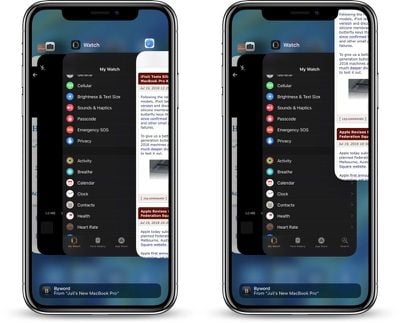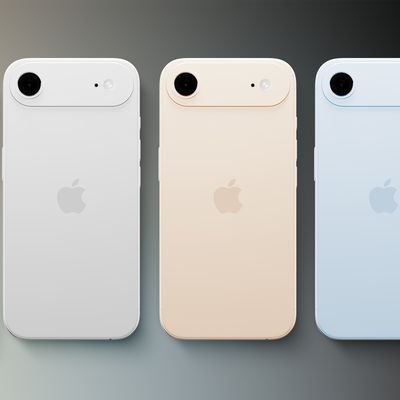When Apple launched iPhones without Home buttons, a whole new set of gestures were introduced, changing the way that we were used to interacting with our iPhones.
One of these changes involved the App Switcher and the way open apps are found, with Apple introducing a gesture to reach the App Switcher on devices with a Home button.

How to close an app on iPhone X, XS, XS Max, XR, iPhone 11, 11 Pro, or 11 Pro Max, iPhone 12, 12 Mini, 12 Pro, or 12 Pro Max
- At the Home screen of the iPhone, or while in an app, swipe up from the bottom of the screen and pause while still pressing the screen.
- When the App Switcher comes up, swipe left and right through the different app cards to find the app that you want to close.
- Use a quick swipe upwards to close the app.
Using this gesture exits out of an app and effectively closes it, which is useful if you need to restart an app for some reason. There's generally no need to close your apps to improve performance, though, as Apple has built-in management systems for dealing with all of the apps that you have open on your device.
Most apps that are not active are in a suspended state and are not using up any resources, but some apps can run in the background for a period of time if background refresh is activated.
According to Apple, force quitting an app will not improve your battery life, and it's possible that doing so can actually drain battery because it causes the iPhone to load it all over again.





















Top Rated Comments
Killing the offending app is the only way to make it stop. And since you have no way of knowing which apps are good and which are bad, it's far easier to just kill them all when you're done with a session.
https://www.macrumors.com/2016/03/10/force-quitting-apps-doesnt-help-battery/
Edit: More documentation from Apple.
https://developer.apple.com/library/archive/documentation/iPhone/Conceptual/iPhoneOSProgrammingGuide/TheAppLifeCycle/TheAppLifeCycle.html#//apple_ref/doc/uid/TP40007072-CH2-SW1
Why keep apps running if they don’t need to be.
[doublepost=1532119816][/doublepost]I'd argue that it's ultimately more efficient to turn off background refresh on these apps rather than to worry about closing them each time you use them. I have background refresh off for Facebook and some other apps that are notorious for using system resources.